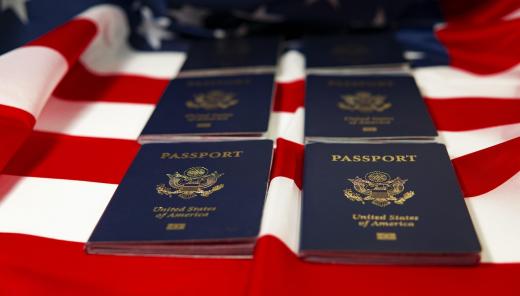
The ban on the US birthright citizenship (jus soli-right of the soil) by the 47th President of the United States, Donald Trump, is probably the one of the most discussed topics at this moment across the globe. This means babies born on US soil are no longer entitled to obtain citizenship automatically by birth.
In 2020, President Trump termed it ‘birth tourism’ and banned this century-long constitutionally guaranteed right immediately after being sworn in. He signed the directive “Protecting the Meaning and Value of American Citizenship” on 20 January 2025 as the beginning of his anti-immigration commitments. However, the order would not take effect for 30 days.
The Evolution of the Birthright Citizenship in the USA
Since the country's independence in 1776, citizenship has been mainly regulated by the laws of individual states. However, the Supreme Court of the United States (SCOTUS) ruled that people who were forcibly brought to the US to be sold as slaves and their descendants could not be considered citizens in Dred Scott v. Sandford (1857).
The 14th Amendment to the USA Constitution provides legal recognition of citizenship by birth and states ‘All persons born or naturalized in the United States, and subject to the jurisdiction thereof, are citizens of the United States and of the State wherein they reside’.
In United States v. Wong Kim Ark (1898), the SCOTUS held that laws passed by Congress cannot exclude persons born in this country from the operation of the broad and clear words of the Constitution. The SCOTUS decided that regardless of the citizenship status of Wong’s parents, he was ‘subject to the jurisdiction’ of the US and qualified for citizenship as a child born in the country, Justice Horace Gray wrote for the majority. Additionally, the court confirmed that ‘the American citizenship which Wong Kim Ark acquired by birth within the United States has not been lost or taken away by anything happening since his birth’.
In 1924, Congress widened citizenship for all Native Americans born in the United States. The Immigration and Nationality Act of 1952 defined citizens and also recognised birthright citizenship. Subsequently in 1982, in Plyler v. Doe, the SCOTUS reaffirmed birthright citizenship for children of undocumented immigrants.
Exceptions to the Birthright Citizenship
A child born in the US to a foreign diplomatic officer with diplomatic immunity is not considered a US citizen because they are not subject to the jurisdiction of the United States.
Moreover, in 2021, in Fitisemanu v. United States, the SCOTUS declared that anyone born in American Samoa’s unincorporated territories is not automatically guaranteed birthright citizenship unless Congress enacts legislation. Also, the baby of enemy occupiers – does not have birthright citizenship.
The Executive Directive
President Donald Trump’s order creates two groups of individuals born in the US who would not be entitled to get citizenship by birth automatically. Firstly, those whose mother was unlawfully present in the US and whose father was not a US citizen or lawful permanent resident at the time of the child’s birth; and secondly those whose mother was in the US on a lawful but temporary visa such as a student or tourist and whose father was not a US citizen or lawful permanent resident at the time of the birth. Hence, this Presidential order also prohibits federal agencies from issuing or acknowledging documentation that verifies US citizenship for these children. The order specifically addresses children born to both unauthorised immigrants and individuals legitimately residing in the US on temporary visas.
The order relies on the legal interpretation that the phrase ‘subject to the jurisdiction’ of the US would not be applicable to undocumented immigrants. Although Plyler v. Doe (1982) promulgated that according to the 14th Amendment, there was ‘no plausible distinction’ between immigrants who entered lawfully and those who entered unlawfully as both were subject to the civil and criminal laws of the State they resided in.
Temporary Suspension of the Directive by the Courts
The US District Judge John C. Coughenour issued a ruling on 23 January 2025 in response to a suit from a coalition of states — Washington, Arizona, Illinois and Oregon that temporarily restrained Trump’s order nationwide for the next 14 days. The court called the order blatantly unconstitutional to the 14th Amendment. Subsequently, another two federal judges in Maryland and New Hampshire have stopped the executive order indefinitely. Several other cases contesting the order are also being filed and getting underway across the US. However, President Trump’s administration challenges the restraining order.
The Effects of the Ban
Trump has incorrectly claimed that the US is the only state offering birthright citizenship. Nevertheless, more than 30 countries, including Argentina, Brazil, Canada, Mexico, Uruguay, Venezuela, have the same system of acquiring citizenship. On the contrary, more than 20 countries, including the UK and Ireland, have reversed or rolled back their policies.
There were an estimated 11 million immigrants in the U.S. illegally in January 2022, a figure that some analysts now place at 13 million to 14 million. Their US-born children are considered by the government to have US citizenship.
This new presidential directive eliminating birthright citizenship, if sustained by the court, will affect everyone. Thousands of newborns would be harmed each year. Furthermore, the president will be able to decide who is subject to the jurisdiction of the United States and who is not. Moreover, in future, citizens’ rights and constitution could be amended through executive order.
Even if the Trump administration is unable to completely ban birthright citizenship of the children of certain immigrants for court’s intervention, officials have reportedly been exploring other ways to tackle the issue. For example, they could try to limit short-term visas for pregnant travellers, so those travellers could not give birth in the boundary of the US and acquire automatic citizenship.
Does Ireland Permit Birthright Citizenship?
A child born in the Republic of Ireland was an Irish citizen by birth until 31 December 2004 through the 19th Amendment of the Constitution of Ireland in 1998. However, subsequently, in 2004 the 27th Amendment of the Irish Constitution abolished the automatic right to citizenship by birth for anyone born in Ireland after 1 January 2005 and gave authority back to the Oireachtas to decide on laws about citizenship by birth.
References
Constitution of Ireland
Constitution of the United States
Dred Scott v. Sandford, 60 U.S. 393 (1856)
Fitisemanu v. United States, 20 F.4th 1325
Plyler v. Doe, 457 U.S. 202 (1982)
The Immigration and Nationality Act of 1952
United States v. Wong Kim Ark, 169 U.S. 649 (1898)
Disclaimer: No AI tools were used in the generation or editing of the text.


